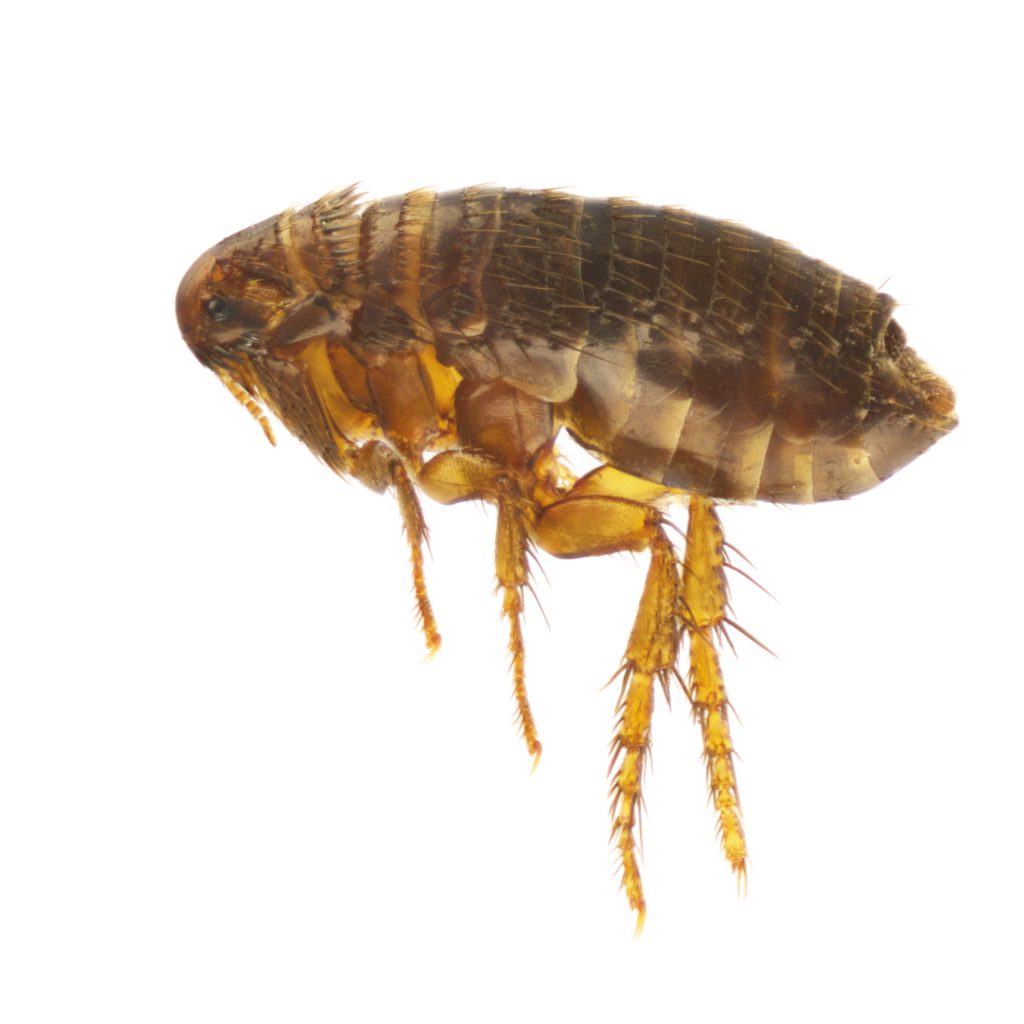
Why Fleas, Ticks, and Other Parasites Aren’t Just a Seasonal Problem
 While warm weather may bring out all of the fleas, ticks, and other pests of the summer season, leaving your pet unprotected from parasites during other seasons may put him or her at risk for a number of vector-borne diseases.
While warm weather may bring out all of the fleas, ticks, and other pests of the summer season, leaving your pet unprotected from parasites during other seasons may put him or her at risk for a number of vector-borne diseases.
Despite the thought that pests are only active during warmer months, flea infestations can pose problems year-round and deer ticks (black-legged ticks) are often active during the winter months, as well.
Because sporadic treatment makes it difficult to prevent initial infestations, skipping your pet’s parasite preventative can be a dangerous gamble, no matter the time of year.
Fleas, Ticks…What’s the Risk?
Although many pet owners may consider parasites to be an itchy annoyance, the diseases they carry can pose serious risks to the health of a pet.
Fleas and ticks, for example, have a life cycle that perpetuates the risk of exposure through continuing to lay eggs and multiply. Fleas can also thrive indoors during winter months, going through the cycle of laying eggs which produce larvae, pupae, and then hundreds of adult fleas.
Additionally, because of climate change patterns, many areas do not experience the consistent freezing temperatures necessary for parasites to go dormant.
Some of the serious illnesses carried by fleas and ticks include:
- Lyme disease
- Rocky Mountain spotted fever
- Cat scratch disease
- Ehrlichiosis
- Tularemia
Fleas are also difficult to contend with since an infestation in the home requires intense cleaning, removal of bedding, linens, and other fabrics, and sometimes calling in an exterminator.
Certainly while the initial thought of lapsing on a preventative is to save money, the costs of treating a complex and dangerous disease (as well as ridding the home of an infestation) is far greater.
Heartworm Disease
Year-round protection against heartworm disease is important for both dogs and cats, even those who remain indoors. This is because one missed dose can leave your pet vulnerable to infection and will require screening for the presence of the disease before restarting the preventative.
The team at Arlington Animal Hospital recommends yearly screening because, once infected, the medications used to prevent heartworm can cause additional complications for those pets with the disease.
Heartworm, too, can also present few symptoms, allowing the lungs and heart to be filled with adult worms before the disease is detected. Because treatment is complex and costly (and even more so for cats), preventing an infection with year-round prevention is the best option.
Intestinal Parasites
Who needs the temperature outside to be pleasant when your pet’s body provides the perfect temperature for ringworms, hookworms, and other parasitic worms to thrive?
These parasites can cause a number of health problems, including weight loss, vomiting, diarrhea, brittle or dull coat, and lack of energy.
During your pet’s annual wellness exams, fecal samples allow us to screen for harmful parasites that may be present.
Get Your Preventatives and Keep Your Pet Protected
Considering the numerous illnesses that can be transmitted to your pet by parasites, you can understand why we emphasize year-round prevention. Taking a chance with your pet’s health may result in more severe problems than the cost of a monthly medication, and the emotional toll of contending with a sick fur friend.
Contact us to schedule your pet’s wellness exam or to inquire about the right parasite preventative for your best friend.
Contact Us!
2301 Columbia Pike #G-1, Arlington, VA 22204
Phone: (703) 920-5300
Fax: (703) 685-8860
Email: info@myarlingtonvet.com
Office Hours
-
Monday
8 a.m. – 8 p.m.
-
Tuesday
8 a.m. – 8 p.m.
-
Wednesday
8 a.m. – 6 p.m.
-
Thursday
8 a.m. – 6 p.m.
-
Friday
8 a.m. – 6 p.m.
-
Saturday
8 a.m. – 2 p.m.
-
Sunday
CLOSED
- Doctors’ hours are by appointment only.



